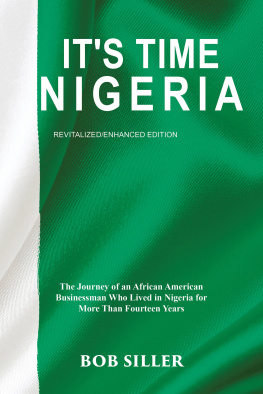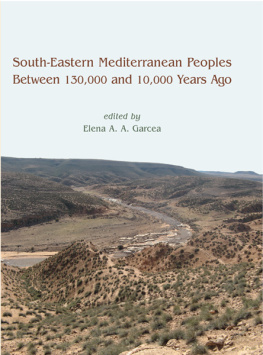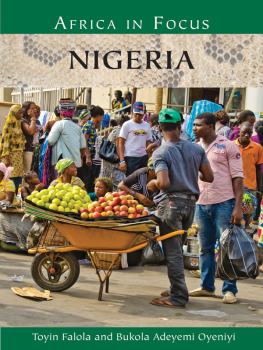First published in 1950 for the International African Institute by the Oxford University Press.
This edition first published in 2017
by Routledge
2 Park Square, Milton Park, Abingdon, Oxon OX14 4RN
and by Routledge
711 Third Avenue, New York, NY 10017
Routledge is an imprint of the Taylor & Francis Group, an informa business
1950 International African Institute
All rights reserved. No part of this book may be reprinted or reproduced or utilised in any form or by any electronic, mechanical, or other means, now known or hereafter invented, including photocopying and recording, or in any information storage or retrieval system, without permission in writing from the publishers.
Trademark notice: Product or corporate names may be trademarks or registered trademarks, and are used only for identification and explanation without intent to infringe.
British Library Cataloguing in Publication Data
A catalogue record for this book is available from the British Library
ISBN: 978-1-138-23217-4 (Set)
ISBN: 978-1-315-30463-2 (Set) (ebk)
ISBN: 978-1-138-23835-0 (Volume 33) (hbk)
ISBN: 978-1-138-23839-8 (Volume 33) (pbk)
ISBN: 978-1-315-29773-6 (Volume 33) (ebk)
Publishers Note
The publisher has gone to great lengths to ensure the quality of this reprint but points out that some imperfections in the original copies may be apparent.
Disclaimer
The publisher has made every effort to trace copyright holders and would welcome correspondence from those they have been unable to trace.
Publishers note
Due to modern production methods, it has not been possible to reproduce all the charts which appeared in the original book. Please go to www.routledge.com/Ethnographic-Survey-of-Africa/Forde/p/book/9781138232174 to view them.
Oxford University Press, Amen House, London E.C. 4
GLASGOW NEW YORK TORONTO MELBOURNE WELLINGTON BOMBAY CALCUTTA MADRAS CAPE TOWN
Geoffrey Cumberlege, Publisher to the University
This study is one section of the Ethnographic Survey of Africa which the International African Institute is preparing with the aid of a grant made by the Secretary of State under the Colonial Development and Welfare Acts, on the recommendation of the Colonial Social Science Research Council.
Printed in Great Britain by
Latimer, Trend & Co. Ltd. Plymouth
ETHNOGRAPHIC SURVEY OF AFRICA
The preparation of a comprehensive survey of the tribal societies of Africa was discussed by the Executive Council of the Institute as far back as 1937, but the interruption and restricting of its activities caused by the war resulted in the postponement of the project. Events and developments during the war led to a wider recognition of the need for collating and making more generally available the wealth of existing but unco-ordinated material on the ethnic groupings and social conditions of African peoples, particularly in connexion with plans for economic and social development. It appeared also that the International African Institute, as an international body which had received support from and performed services for the different Colonial governments, was in a very favourable situation for undertaking such a task.
The Institute, therefore, in 1944, applied to the recently established British Colonial Social Science Research Council for a grant from the Colonial Development and Welfare Fund to finance the preparation of an Ethnographic Survey of Africa, and a grant was allocated for a period of five years from 1945. A committee, under the chairmanship of Professor Radcliffe Brown, was appointed to consider the scope and form of the survey; and collaboration was established with research institutions in South Africa, Rhodesia, East Africa, French West Africa, Belgium and the Belgian Congo.
The aim of the Ethnographic Survey is to present a concise, critical and accurate account of our present knowledge of the tribal groupings, distribution, physical environment, social conditions, political and economic structure, religious beliefs and cult practices, technology and art of the African peoples. The material is to be presented as briefly and on as consistent a plan as possible, and the text will be supplemented by maps and comprehensive bibliographies.
The Ethnographic Survey will be published as a series of separate, self-contained studies, each devoted to one particular people or cluster of peoples. It is hoped that publication in this form will make results more quickly and readily available to those interested in specific areas or groups. The sections of the survey will be published as they are completed, and a list of those in course of publication is given on the cover of this section.
Since the unequal value and the generally unsystematic nature of the available information constituted a chief reason for undertaking this survey, it will be obvious that the material here presented can make no claim to be complete or definitive. Every effort has been made, however, to scrutinize all available literature and to check it by reference to unpublished sources and to workers actually in the field; thus it is intended to present a clear picture of our existing knowledge and to point out the directions in which the need for further studies is most pressing. Any assistance from those who are in a position to remedy deficiencies and correct inaccuracies by providing supplementary material will be greatly appreciated.
The International African Institute expresses its thanks to the Colonial Social Science Research Council, for recommending the grant which has made possible the initiation of the work, and also to the many scholars, research workers, administrative officers and missionaries in Europe, South Africa and the various African territories who have so generously responded to our appeals for information and who have spared time to correct and add to the drafts. We are especially grateful for help given in the preparation of this part of the Survey The Ibo and Ibibio-speaking Peoples by Mr. G. I. Jones, Lecturer in Anthropology in the University of Cambridge, who made available his extensive records of Ibo and Ibibio groups assembled during his long period of service and study in South-Eastern Nigeria; and also to Miss Barbara Pym who assisted throughout in the compilation of published and unpublished material.
Daryll Forde
Director, International African Institute











